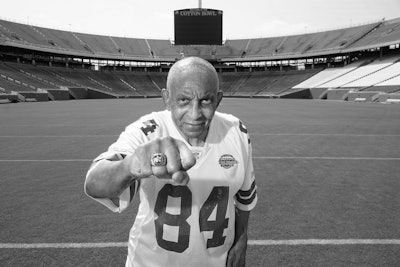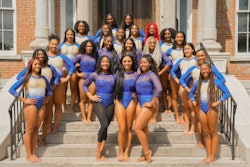J
Norman, an All-CIAA tight end at the Charlotte HBCU who went on to play 12 seasons in the NFL, was the first in his sharecropper family to graduate college and became a pioneering advocate for desegregation in professional sports.
The youngest of 10 children born in Lincolnton, Georgia, Norman became the first in his family to graduate college when he earned his physical education degree from JCSU in 1962. His path to higher education began when JCSU football coach Eddie McGirt intervened to secure his release from Air Force enlistment, offering him a scholarship that would change his life.
At JCSU, Norman excelled as a multi-sport athlete, earning All-CIAA honors in football and nearly choosing professional baseball after pitching a perfect game in state playoffs. His athletic prowess caught the attention of major league scouts, but as Norman reflected in 2020, "God intervened and set me on a path to the NFL."
Norman's college experience extended far beyond athletics. Under the mentorship of Professor Herman Counts, he developed his life philosophy that would guide his future endeavors. "Professor Counts once asked me, 'Pettis, what do you really want to do in life?'" Norman recalled. "My response: 'I want to make life count.' This led to my personal mantra, 'Make life count anyhow.'"
This HBCU education proved foundational to Norman's 12-year NFL career with the Dallas Cowboys and San Diego Chargers, where he accumulated 2,492 receiving yards and 15 touchdowns. Known as "Stone Wall" during his college days, Norman used his platform as a professional athlete to advance civil rights causes, pushing the Cowboys to desegregate their organization and leading marches and rallies.
The Dallas Texans (now Kansas City Chiefs) selected Norman in the 1962 AFL draft, but he instead signed with the Cowboys as an undrafted free agent. He primarily played special teams before earning the starting tight end position in 1964, holding that spot until 1970. He was traded to the San Diego Chargers in 1971 in exchange for receiver Lance Alworth, who was later inducted into the Pro Football Hall of Fame.

















